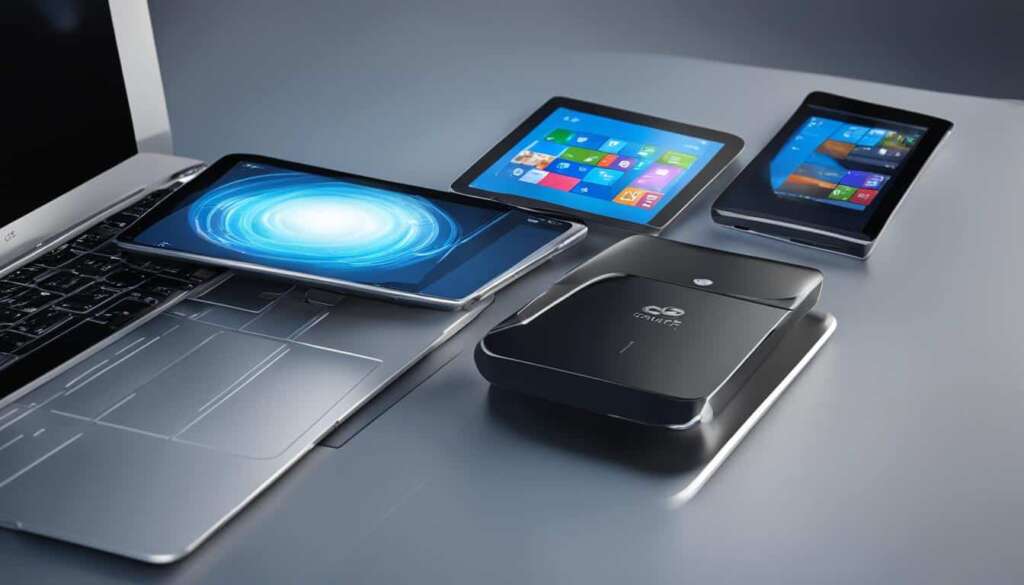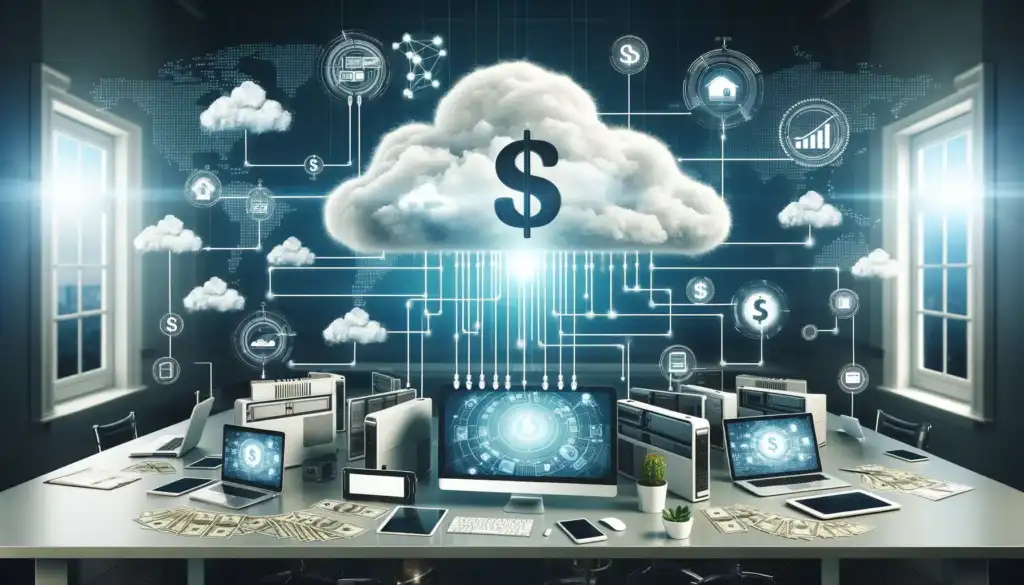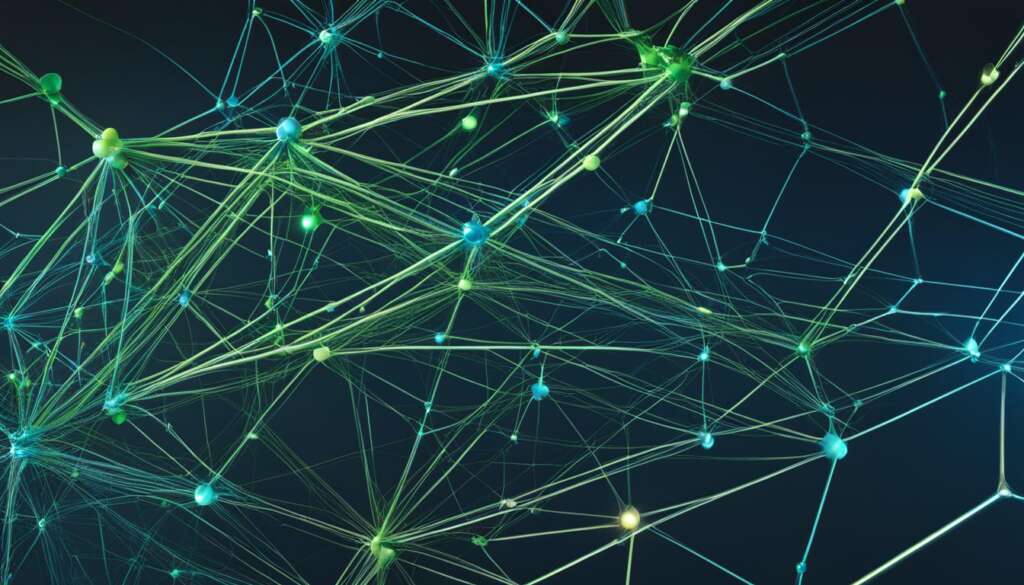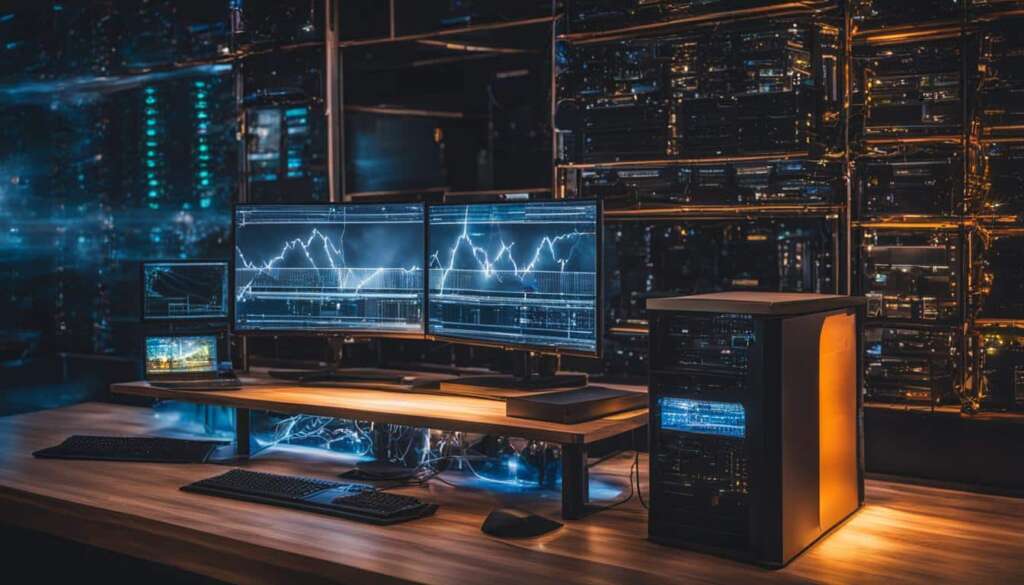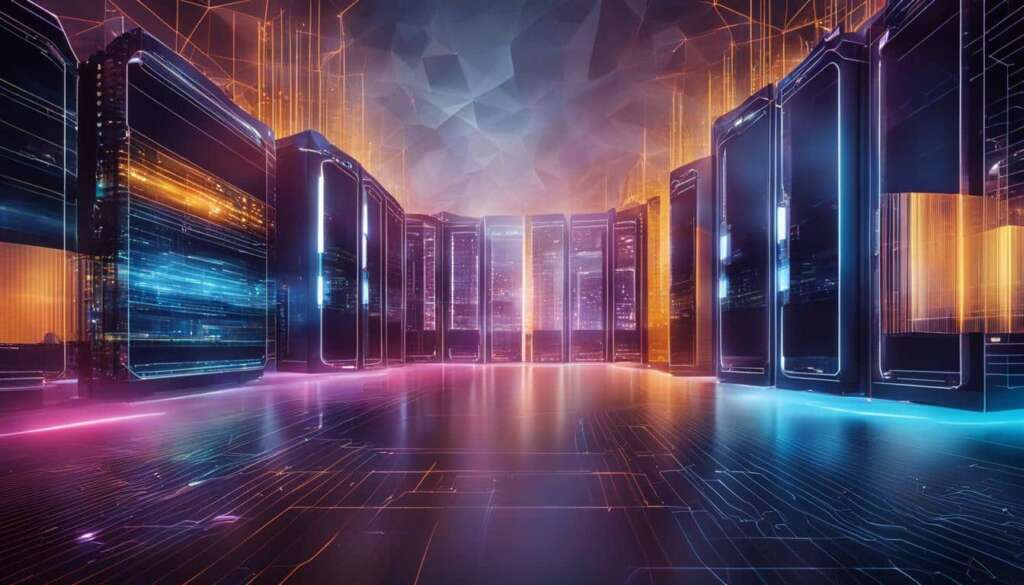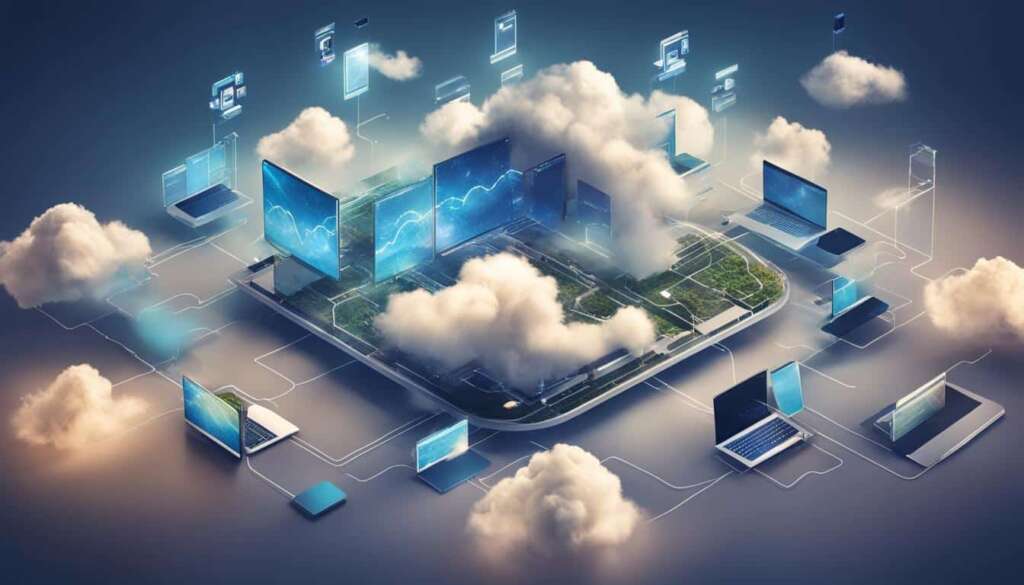Table of Contents
Pervasive computing, also known as ubiquitous computing, refers to the integration of computational capability into everyday objects, allowing them to communicate and perform tasks without the need for direct interaction with computers. This trend involves embedding microprocessors into objects like wearable devices, sensors, and even household appliances.
Ubiquitous computing enables wireless communication, networking, and the use of technologies like RFID tags and software agents. It has applications in various industries, including energy, entertainment, healthcare, logistics, and the military.
The history of ubiquitous computing can be traced back to the concept’s inception at the Olivetti Research Laboratory in Cambridge, England, and the work of Mark Weiser, considered the father of the field. The term “ubiquitous computing” was coined in 1988, and it has since evolved to include the related concepts of pervasive computing and ambient intelligence.
How Ubiquitous Computing is Used
Ubiquitous computing has revolutionized the way consumers interact with technology in their daily lives. Several devices and services exemplify the practical applications of ubiquitous computing, including the Apple Watch, Audible, smartphones, and the Amazon Echo.
The Apple Watch is a prime example of how ubiquitous computing seamlessly integrates into our lives. This multifunctional wearable device not only tells time but also acts as an extension of our smartphones. With its ability to alert users to phone calls and messages, the Apple Watch allows them to stay connected without constantly checking their phones. Moreover, users can even complete phone calls directly through the watch, making communication more convenient and efficient.
Another service made possible by ubiquitous computing is Audible, an audio book server. Audible enables users to enjoy their favorite books in a seamless manner. For instance, someone can start listening to a book on their smartphone while commuting, and when they get home, they can effortlessly continue from where they left off by using a device like the Amazon Echo. This smooth transfer of tasks and data across devices provides a connected and convenient user experience.
Ubiquitous computing has transformed our smartphones into essential ubiquitous devices. These compact but powerful gadgets have become an integral part of our daily lives, offering a wide range of functionalities beyond communication. With features such as voice assistants, GPS navigation, and access to diverse applications, smartphones serve as a central hub for various activities, seamlessly blending technology into our routines.
Industries Benefitting from Ubiquitous Computing
Ubiquitous computing has the potential to revolutionise various industries by leveraging connected technologies and integrated systems. Let’s explore how the energy, entertainment, healthcare, logistics, and military sectors can benefit from ubiquitous computing:
Energy
Ubiquitous computing can enable the development of smart grids and efficient energy management systems. Through the integration of computational capability into energy infrastructure, real-time monitoring and optimization can be achieved, leading to more sustainable and cost-effective energy solutions.
Entertainment
In the entertainment industry, ubiquitous computing can enhance the user experience by creating immersive and personalized entertainment platforms. By leveraging ubiquitous systems, entertainment providers can offer tailored content and interactive experiences based on individual preferences and context.
Healthcare
In healthcare, ubiquitous computing plays a crucial role in patient monitoring and remote healthcare services. Through wearable devices and sensor networks, healthcare professionals can continuously monitor patient vitals and provide timely interventions. Additionally, ubiquitous computing enables remote consultations and telemedicine, improving access to healthcare for individuals in remote areas or with limited mobility.
Logistics
The logistics industry can greatly benefit from the integration of ubiquitous computing. Real-time tracking and efficient supply chain management can be achieved through the use of connected technologies and sensor networks. The ability to collect and analyse data in real-time enables optimized route planning, inventory management, and timely delivery of goods.
Military
In the military, ubiquitous computing can enhance situational awareness and communication capabilities. By leveraging connected devices and adaptive systems, military personnel can access and share critical information in real-time, leading to improved decision-making and operational efficiency. Ubiquitous computing can also enable secure and reliable communication in challenging environments.
By harnessing the power of ubiquitous computing, these industries can achieve significant advancements in efficiency, productivity, and effectiveness. The integration of connected technologies and pervasive computing systems opens up new possibilities and opportunities for innovation across various sectors.
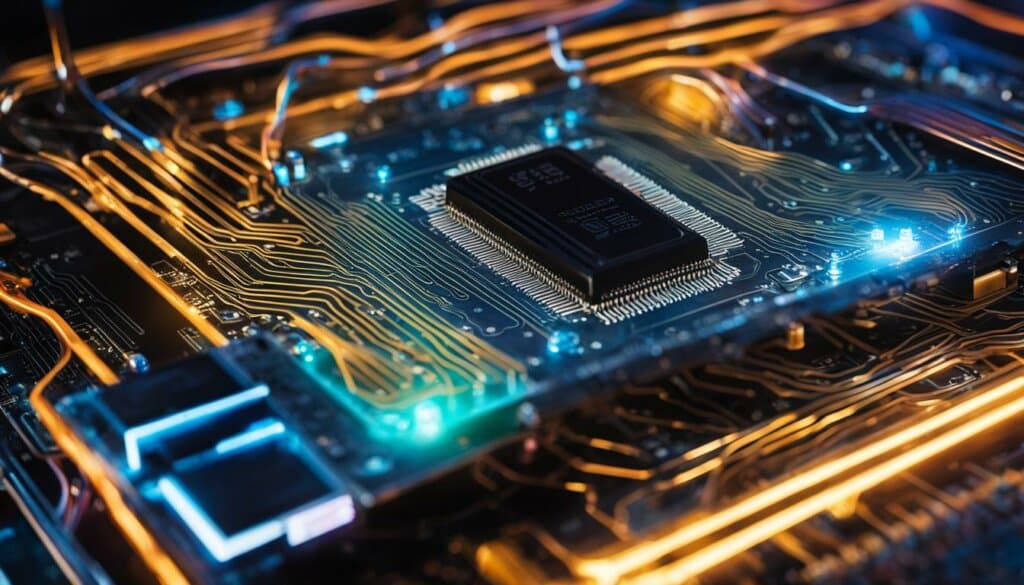
The Importance of Ubiquitous Computing
Ubiquitous computing systems have the capability to collect, process, and communicate data, allowing them to adapt to their surroundings. This context-awareness enables the improvement of the human experience and quality of life. By understanding the data’s context and activity, ubiquitous computing systems can provide personalized services and anticipate user needs. This technology has the potential to make computing seamlessly integrated into daily life, resulting in a more efficient and convenient user experience.
The History of Ubiquitous Computing
Ubiquitous computing can be traced back to the groundbreaking research conducted at the Olivetti Research Laboratory in Cambridge, England. It was at this prestigious laboratory that the concept of embedding computational capability into everyday objects was pioneered, laying the foundation for the field of ubiquitous computing as we know it today.
One of the key figures in advancing the field was Mark Weiser, widely regarded as the father of ubiquitous computing. Weiser’s invaluable contributions to the field were made during his time at Xerox PARC (Palo Alto Research Center), a renowned research institution. Collaborating with his colleagues, Weiser developed early prototypes of ubiquitous computing devices, such as “tabs,” “pads,” and “boards.”
Weiser’s vision for ubiquitous computing went beyond the mere integration of technology into everyday objects. He believed that technology should seamlessly blend into our lives, becoming virtually invisible. This approach challenged the prevailing trend of making computers the focus and instead emphasized the importance of technology becoming omnipresent yet unobtrusive.
The innovative work carried out at the Olivetti Research Laboratory and Xerox PARC paved the way for the development of groundbreaking technologies that we now take for granted. From humble beginnings, ubiquitous computing has evolved into a transformative field that continues to shape our modern digital landscape.
Early Ubiquitous Computing Devices
To provide a glimpse into the early days of ubiquitous computing, let’s take a closer look at some of the significant devices created by Mark Weiser and his team:
| Device | Description |
|---|---|
| “Tabs” | A small, portable device designed to serve as a personal digital assistant, capable of seamlessly interacting and exchanging information with other ubiquitous computing devices. |
| “Pads” | Larger than the “tabs,” these devices were envisioned as portable information access points that could be easily carried or accessed in various environments. |
| “Boards” | These were large-scale displays, often wall-mounted, that allowed users to interact with and access a wealth of information effortlessly. |
These early devices exemplified the vision of ubiquitous computing, aiming to integrate technology seamlessly into our daily lives, making it an integral part of our surroundings.
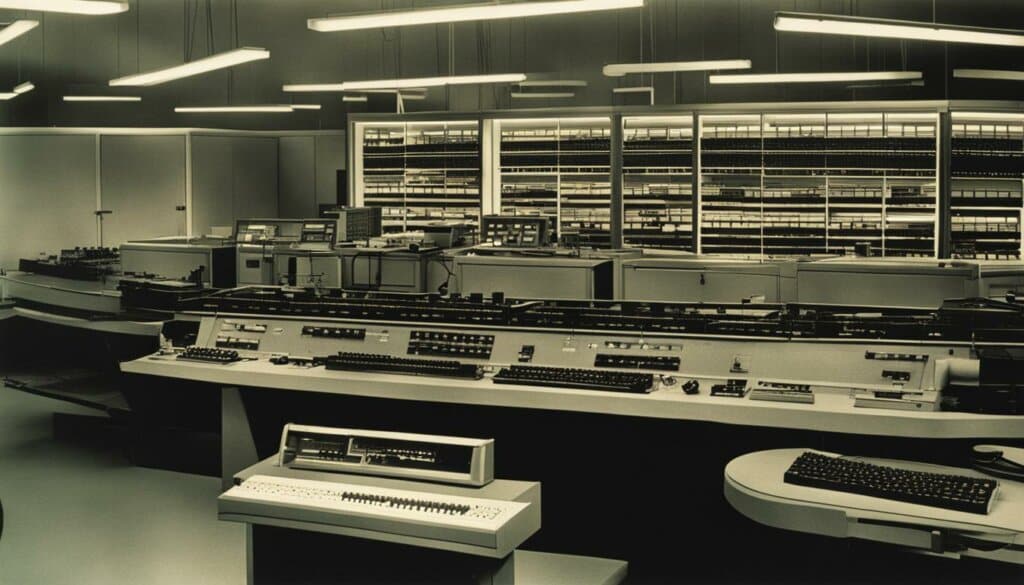
Ubiquitous Computing and the Internet of Things
Ubiquitous computing and the Internet of Things (IoT) are closely related concepts. While there is some overlap, IoT focuses more on the connectivity and communication between devices, while ubiquitous computing emphasizes the integration of computing into everyday objects. However, both concepts involve the collection and processing of data.
IoT devices often utilize wireless sensor networks to collect data from individual sensors before relaying it to IoT servers. This network of interconnected sensors enables the seamless transfer of data, allowing for real-time monitoring and control. Sensor networks play a crucial role in IoT applications, providing the foundational infrastructure for data collection.
Data collection, a fundamental aspect of both IoT and ubiquitous computing, involves gathering information from various sources, such as sensors, devices, and user interactions. This data can include environmental measurements, user behavior, or system performance metrics. The collected data forms the basis for further analysis and decision-making processes.
Configuration is another vital aspect of IoT and ubiquitous computing. It involves setting up and customizing the behavior of devices and systems to meet specific requirements. Configuration allows for flexibility and adaptability, enabling devices to respond to changing conditions and user preferences.
Human-computer interaction (HCI) is a key focus in both IoT and ubiquitous computing. The goal is to design systems and interfaces that are intuitive, user-friendly, and enhance the overall user experience. HCI principles consider the needs, capabilities, and preferences of users, ensuring that technology is accessible and easy to use.
To better understand the relationship between these concepts, consider the example of a smart home. In a smart home, IoT devices such as smart thermostats, lighting systems, and security cameras form a network that collects data from various sensors and interacts with users. The integration of computing into everyday objects enables the automation and control of different aspects of the home, creating a more efficient and convenient living environment.
Overall, the combination of ubiquitous computing and the Internet of Things has the potential to transform various industries and enable a more connected and data-driven world. The seamless integration of computing into everyday objects, coupled with the power of sensor networks and data collection, opens up new possibilities for innovation and improved user experiences.
Conclusion
In conclusion, ubiquitous computing is a rapidly growing field with the goal of seamlessly integrating technology into our everyday lives. By embedding computational capability into objects and environments, ubiquitous computing enables communication, adaptation, and the provision of personalized services. With applications in various industries, this technology holds the potential to enhance the human experience and improve overall quality of life.
As technology continues to advance, the future of ubiquitous computing looks promising. The constant innovation and development in this field promise new and exciting opportunities. From smart homes and connected cities to wearable devices and intelligent transportation systems, the possibilities are endless. Ubiquitous computing has the potential to transform the way we interact with our environment and bring about a new era of convenience and efficiency.
As we move forward, it is important to consider the ethical and privacy implications of widespread adoption of ubiquitous computing. Balancing the benefits and potential risks will be crucial in ensuring a responsible and beneficial future for this technology. With careful consideration and regulation, ubiquitous computing can pave the way for a more connected, intelligent, and convenient society.
FAQ
What is ubiquitous computing?
Ubiquitous computing, also known as pervasive computing, refers to the integration of computational capability into everyday objects, allowing them to communicate and perform tasks without the need for direct interaction with computers.
How does ubiquitous computing benefit consumers?
Ubiquitous computing enables the seamless transfer of tasks and data across different devices, providing a connected and convenient user experience. For example, devices like the Apple Watch can alert users to phone calls and allow them to complete the call through the watch.
In which industries can ubiquitous computing be applied?
Ubiquitous computing has applications in various industries, including energy, entertainment, healthcare, logistics, and the military. It can enable smart grids, personalized entertainment experiences, enhanced healthcare monitoring, efficient supply chain management, and improved situational awareness in the military.
How does ubiquitous computing improve the human experience?
Ubiquitous computing systems have the capability to collect, process, and communicate data, allowing them to adapt to their surroundings. This context-awareness enables the improvement of the human experience and quality of life by providing personalized services and anticipating user needs.
What is the history of ubiquitous computing?
Ubiquitous computing can be traced back to the work done at the Olivetti Research Laboratory in Cambridge, England, where the concept of embedding computational capability into everyday objects was pioneered. Mark Weiser, often considered the father of ubiquitous computing, further developed this concept during his time at Xerox PARC.
What is the relationship between ubiquitous computing and the Internet of Things (IoT)?
Ubiquitous computing and the Internet of Things (IoT) are closely related concepts. While there is some overlap, IoT focuses more on the connectivity and communication between devices, while ubiquitous computing emphasizes the integration of computing into everyday objects.

